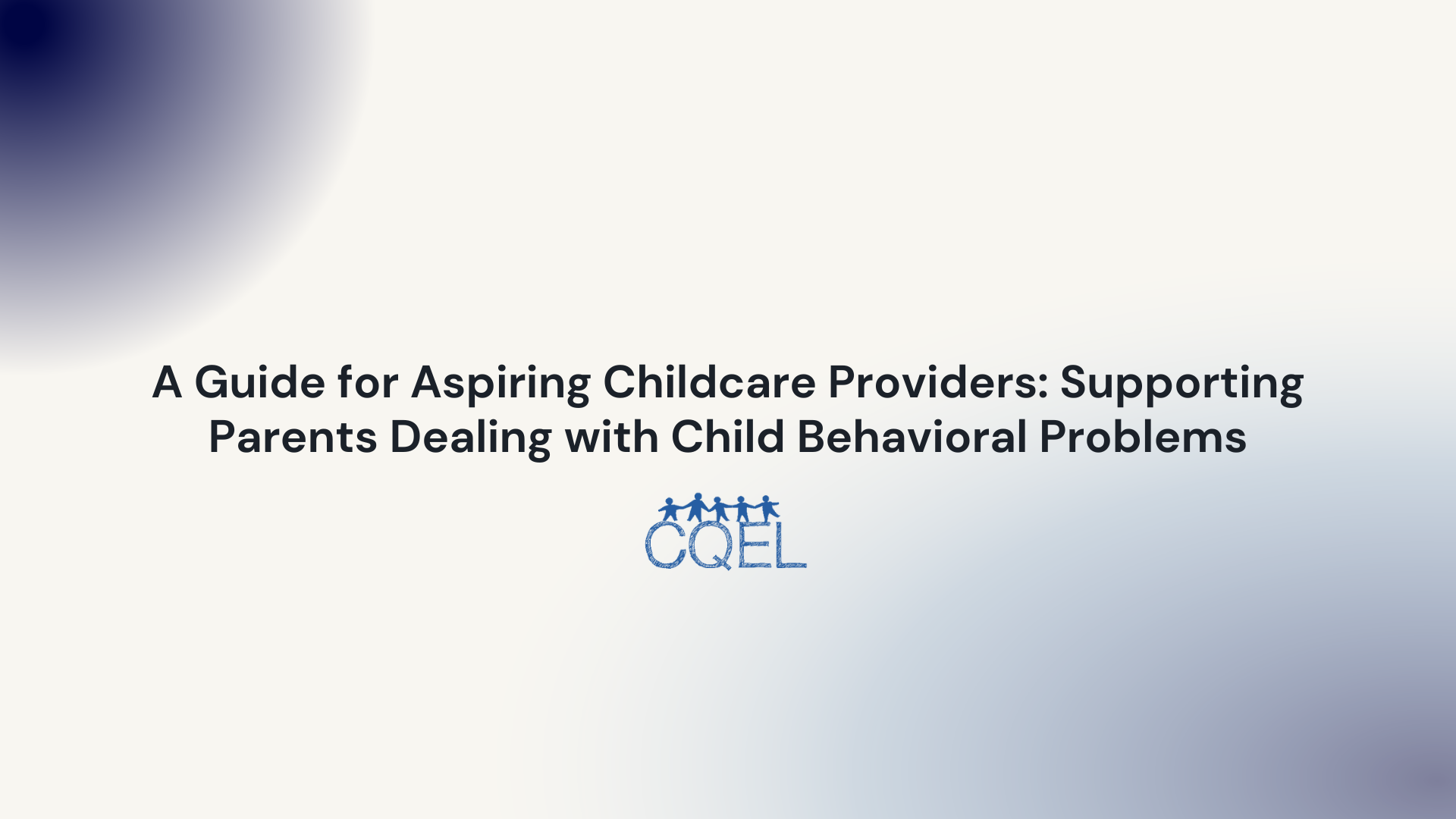A Guide for Aspiring Childcare Providers: Supporting Parents Dealing with Child Behavioral Problems
A key part of your role will involve understanding and navigating the challenging terrain of child behavioral problems.

A key part of your role will involve understanding and navigating the challenging terrain of child behavioral problems. With an empathetic and informed approach, you'll be in a better position to support not only the children in your care but also their parents.
Understanding Child Behavioral Problems
Behavioral problems in children can take many forms. These issues can stem from genetic, psychological, or environmental factors and they often significantly impact a child's development. As a childcare provider, familiarizing yourself with different types of behavioral problems, their symptoms, and causes, will equip you to provide optimal care. The American Academy of Child & Adolescent Psychiatry provides a wealth of information on this topic.
The Childcare Provider's Role in Addressing Behavioral Problems
As a childcare provider, you're in a unique position to observe children in a setting distinct from their home, enabling early detection of behavioral problems. Managing these issues involves adopting appropriate strategies, such as positive reinforcement and setting clear boundaries, and crucially, communicating effectively with parents.
California Regulations and Resources Related to Behavioral Issues
California offers a wide range of state-sponsored programs and services designed to assist with child behavioral problems. Being informed about these resources and the state's guidelines on managing child behavioral issues, such as those provided by The California Department of Education, will enable you to offer knowledgeable guidance to parents.
Effective Communication with Parents about Behavioral Issues
When discussing a child's behavioral issues, empathetic and constructive communication is key. Developing a plan in collaboration with parents ensures consistency and effectiveness in managing these issues both at your facility and at home. The National Association for the Education of Young Children offers excellent resources on communicating with families.
Educational Resources for Parents
Numerous educational resources are available for parents dealing with child behavioral problems. Direct parents to relevant classes, workshops, and web-based resources such as Parenting Counts and literature that will aid them in understanding and managing their child's behavior better.
Therapeutic Resources for Parents and Children
Therapeutic intervention can be crucial for children with behavioral problems. Assist parents in finding qualified therapists in California through resources like Psychology Today's Therapist Directory, and emphasize the importance of consistent follow-ups and home implementation of therapeutic strategies.
Financial Assistance Resources for Parents
Therapeutic interventions can be costly, but several financial assistance options are available to parents. Guide parents through insurance options, grants, funding opportunities, and low-cost resources like those provided by California Health and Human Services.
Community Support and Networking for Parents
Support groups, community organizations, and networking events offer emotional support and shared experiences for parents dealing with child behavioral problems. Encourage parents to reach out to these communities, such as The California Parenting Institute, as they can provide invaluable insights and emotional backing.
Advocacy and Rights of Children with Behavioral Problems
Every child, including those with behavioral problems, has a right to quality education. Empower parents with the knowledge of these rights and direct them to advocacy groups and legal resources such as Disability Rights California.
Staying Updated: Continuous Education for Childcare Providers
Childcare is a field that's constantly evolving. Staying updated on the latest findings on child behavior, intervention strategies, and available resources is key to providing the best care and support. Engage in continuous education and networking with other childcare providers through platforms like Early Childhood Education California.
Being a childcare provider involves continuous learning and adaptability. By understanding child behavioral problems and the resources available, you can play an invaluable role in the lives of children and their parents. Remember, your role is not just about child care; it's about supporting families and being a pillar in a child's development. Embrace this journey with empathy and dedication, and you'll make a significant difference in countless lives.
